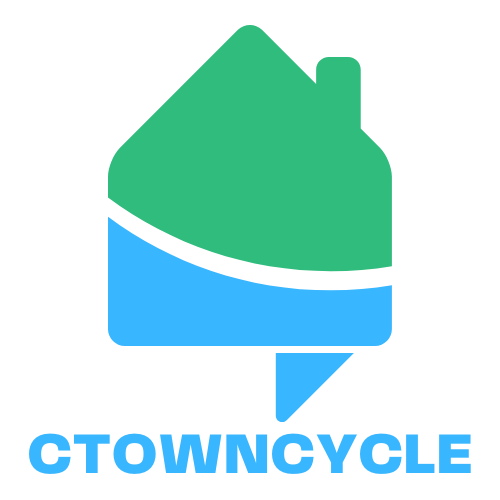Table of Contents
ToggleIn the fast-paced world of real estate, managing a sales pipeline can feel like juggling flaming torches while riding a unicycle. With clients, listings, and negotiations flying at them from every direction, realtors need a solid strategy to keep everything in check. Enter sales pipeline management—the unsung hero of successful real estate transactions.
Think of it as the GPS for a realtor’s journey. It helps navigate through the twists and turns of client interactions and property showings, ensuring no lead gets lost in the shuffle. By mastering this essential tool, realtors can not only boost their productivity but also keep their sanity intact. So, let’s dive into the art of pipeline management and discover how it can transform chaos into a well-oiled machine.
Understanding Realtor Sales Pipeline Management
Realtor sales pipeline management streamlines real estate transactions, ensuring organization and timely follow-ups. Effective management navigates the complexities of client interactions.
Definition and Importance
Sales pipeline management refers to the systematic approach to tracking potential and ongoing deals within real estate. This framework empowers realtors to visualize their workflow, prioritize leads, and optimize processes efficiently. With organized pipeline management, realtors enhance productivity and increase their closing rates. A defined process minimizes chaos and helps agents stay focused on high-value tasks. Understanding the nuances of pipeline management can significantly affect overall success in a competitive market.
Key Components of a Sales Pipeline
Several key components form the backbone of an effective sales pipeline. First, lead generation captures potential buyers or sellers through various channels, such as referrals and online listings. Next, qualification assesses leads based on their readiness to transact and aligns them with appropriate follow-up actions. Additionally, nurturing involves maintaining communication and building relationships with prospects. The presentation follows, where realtors showcase properties and discuss terms. Closing is the final stage, encompassing negotiations and transaction finalization. Each component plays a vital role in guiding prospects from initial contact to successful closings, ensuring a seamless experience for both realtors and their clients.
Building an Effective Sales Pipeline
Building an effective sales pipeline involves strategic planning and execution. This ensures that realtors can efficiently manage their leads and close transactions.
Setting Clear Goals
Establishing clear goals lays the foundation for a successful sales pipeline. Realtors benefit from defining specific, measurable, attainable, relevant, and time-bound (SMART) objectives. They can prioritize leads more effectively when goals highlight desired outcomes. Setting a tangible target, like aiming to close five deals per month, drives focus and motivation. Tracking progress against these goals provides insights into overall performance, identifying areas of improvement. Regularly reassessing goals allows agents to adapt to market changes and refine their approach, optimizing effectiveness.
Identifying Potential Leads
Identifying potential leads demands a proactive and systematic approach. Agents should leverage multiple channels, including social media, referrals, and networking events. Harnessing these platforms expands outreach and cultivates relationships. Utilizing tools like customer relationship management (CRM) software enhances lead tracking, enabling realtors to monitor interactions effectively. Evaluating leads based on interests and engagement levels helps prioritize those most likely to convert. Consistent follow-ups and nurturing relationships contribute to a steady flow of prospects, driving long-term success in sales efforts.
Tools and Technology for Pipeline Management
Effective pipeline management incorporates various tools and technologies designed to optimize realtor workflows and enhance productivity.
CRM Software Options
Popular CRM software options like Salesforce, HubSpot, and Zoho streamline lead tracking. These platforms offer features for organizing client information, logging interactions, and automating follow-ups. Customizable dashboards enable realtors to visualize their sales pipeline clearly. By utilizing tags and notes, agents can categorize leads based on readiness and engagement level. Additionally, integration capabilities with email and marketing tools enhance data cohesion. This comprehensive functionality allows realtors to prioritize tasks and focus on high-value interactions.
Automation and Integration Solutions
Automation and integration solutions significantly improve efficiency in pipeline management. Tools such as Zapier and Integromat connect various applications, allowing data synchronization without manual input. Automated reminders for follow-ups ensure that realtors stay on track with lead nurturing. Integration of marketing platforms enhances lead generation efforts, funneling potential clients directly into the CRM. These technologies reduce administrative tasks, allowing agents to dedicate more time to personalized communication. Overall, leveraging automation supports a more organized and responsive sales process.
Best Practices for Managing Your Pipeline
Effective management of a sales pipeline involves techniques that improve engagement and track progress. Implementing these best practices can significantly contribute to realtors’ success.
Regular Follow-Ups
Consistent follow-ups play a crucial role in nurturing leads. Scheduling reminders for follow-up calls or emails keeps realtors engaged with potential clients. It’s essential to personalize communications based on interaction history. This approach shows prospects genuine interest, which can influence their decision-making. Keeping a detailed record of each conversation allows realtors to refer back to previous discussions, fostering stronger relationships. Engaging with leads routinely also minimizes the risk of losing potential deals and maintains ongoing dialogue.
Tracking Progress and Metrics
Monitoring progress and key metrics ensures realtors stay informed about their sales pipeline. Utilizing CRM systems aids in visualizing the stages of each deal. Tracking conversion rates provides insight into which leads require more attention. Setting specific benchmarks, such as response rate and follow-up frequency, helps in evaluating effectiveness. Monthly reviews of performance data reveal trends and areas for improvement. Adapting strategies based on metrics maintains relevance in a competitive landscape. By consistently analyzing these elements, realtors can fine-tune their approach and enhance overall sales success.
Overcoming Common Challenges
Real estate professionals often face challenges in managing their sales pipelines effectively. Understanding how to address these obstacles enhances efficiency and fosters better client relationships.
Dealing with Stalled Deals
Stalled deals disrupt the flow of a sales pipeline. Identifying signs of stagnation allows realtors to proactively engage clients before they lose interest. Regular check-ins can rekindle conversations and clarify any lingering concerns. Utilizing CRM data helps pinpoint where deals commonly stall, revealing patterns during the sales process. Setting reminders for follow-ups ensures consistent outreach, keeping leads warm. Offers of updated market information or timely insights may re-engage interest and facilitate movement toward closing.
Maintaining Lead Engagement
Maintaining engagement with leads is essential in a competitive market. Communicating regularly through personalized emails keeps agents top-of-mind. Segmenting leads based on interests enables tailored content that resonates with each client. Hosting informational webinars or local market updates fosters community and positions realtors as trusted resources. Utilizing social media allows for ongoing interactions that build rapport. Creating value through consistent content updates builds lasting relationships, driving leads down the funnel toward conversion.
Mastering realtor sales pipeline management is essential for success in the fast-paced real estate market. By organizing leads and streamlining processes, realtors can enhance their productivity and focus on high-value tasks. The right tools and strategies empower agents to nurture relationships and maintain engagement, ultimately driving sales success.
Implementing best practices like consistent follow-ups and performance tracking can significantly improve outcomes. Addressing challenges proactively ensures that realtors stay ahead of the competition. A well-managed pipeline not only leads to more closed deals but also fosters lasting client relationships, paving the way for future referrals and long-term growth.




